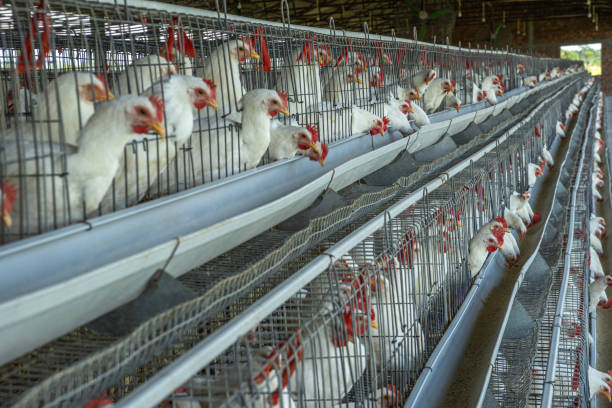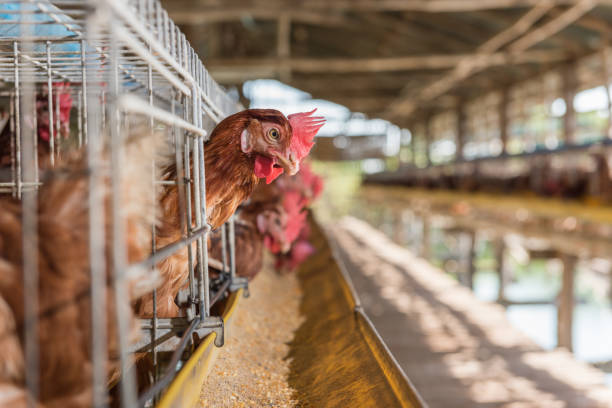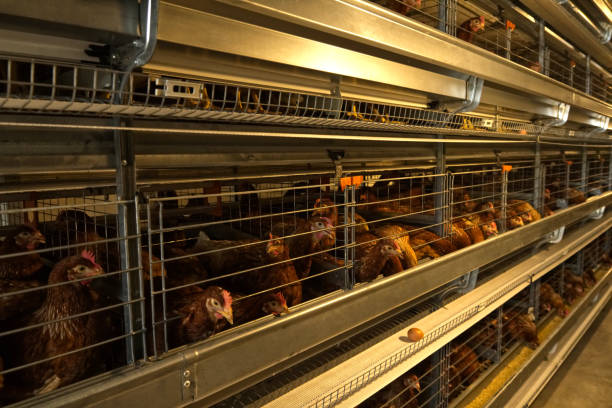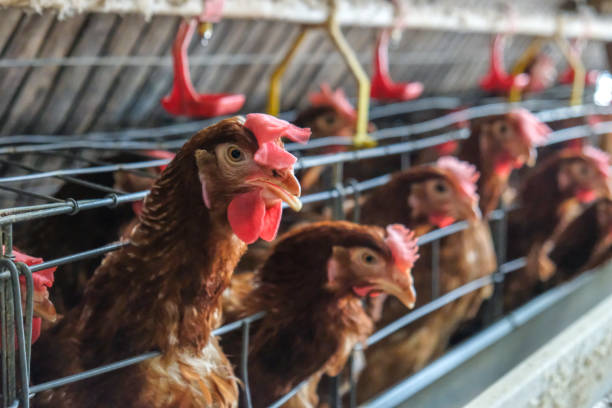
Chicken Cage Systems: Cost & Price Guide
Chicken Cage Systems: Cost & Price Guide
When it comes to modern poultry farming, one of the most critical decisions you’ll make is choosing the right chicken cage system. Whether you’re starting a small farm or expanding an existing operation, investing in the right equipment can significantly impact your productivity, animal welfare, and profitability. But with so many options on the market—from basic layer cages to fully automated systems—the question that often hits every farmer is: How much do chicken cage systems really cost? And what factors affect their price? In this guide, we’ll walk you through everything you need to know about chicken cage pricing, helping you make a smart, budget-friendly choice without compromising on quality.
What Affects the Price of Chicken Cage Systems?
The cost of chicken cage systems isn’t set in stone—it varies widely depending on several key factors. First, let’s talk about materials. Most commercial chicken cages are made from galvanized steel, which offers excellent durability and resistance to rust—essential for long-term use in humid farm environments. Some manufacturers may offer lower-cost alternatives using thinner wire or non-galvanized metal, but these tend to wear out faster and could end up costing more over time due to maintenance or replacement. At Livi Machinery, our cages use high-quality galvanized steel throughout, ensuring 10+ years of service even under intensive conditions.
Next, size and capacity play a major role in pricing. A small 50-bird cage setup will naturally be cheaper than a large-scale multi-tier system housing thousands of birds. Commercial farms often go for three- or four-tier stacked designs to maximize space efficiency, especially in limited barn footprints. These complex configurations require more frame structure, stronger support components, and additional accessories like manure belts or egg collection trays—all of which add to the final cost. Modular systems, while slightly pricier upfront, give you the flexibility to expand gradually as your flock grows, making them a smarter long-term investment.
Automation is another big factor impacting price. Basic manual cages might only include feeding and watering troughs operated by hand. On the other hand, advanced automatic chicken cage systems come equipped with features like auto-feeding lines, belt scrapers for waste removal, climate control integration, and even AI-powered monitoring tools. While automated setups can cost upwards of $30–$60 per bird in initial investment, they dramatically reduce labor costs and improve hygiene, feed efficiency, and overall flock health. For farms aiming at serious scalability, automation almost always pays for itself within a few production cycles.
Finally, custom design and full-service solutions influence pricing too. Off-the-shelf models are generally cheaper, but they may not perfectly fit your available space or match your specific production goals. Companies like Livi specialize in tailored solutions—from layout planning to installation support—that ensure optimal performance. Customization includes everything from adjusting tier height and bird density to integrating ventilation systems or solar-powered controls. Though this adds to the total cost, it eliminates inefficiencies and helps avoid costly retrofits down the road.

Breakdown of Common Chicken Cage Types & Their Costs
Let’s take a closer look at the different types of chicken cages available today and their typical price ranges (all prices approximate and based on USD):
The most common type is the layer hen cage, designed specifically for egg-producing chickens. Traditional individual cages house 2–4 hens each and range from $8 to $15 per bird space. Colony or enriched cages—which provide more room plus nesting areas and perches—are increasingly popular due to rising animal welfare standards. These run between $18 and $28 per bird but help produce higher-quality eggs and meet export compliance in countries like the EU. For large operations, modular colony systems with automatic egg belts can scale efficiently and cost between $25,000 and $120,000 depending on capacity (5,000 to 20,000 birds).
Broiler (meat chicken) cage systems are gaining ground as farmers seek cleaner, more controlled meat production environments. Unlike traditional floor-raising methods, broiler cages improve air circulation, reduce mortality rates, and make cleaning easier. Prices for broiler cages typically fall between $6 and $12 per bird place. Due to shorter grow-out periods, many producers opt for simpler, low-tech versions unless they’re running continuous batch cycles.

For younger birds, chick rearing or育雏笼 (starter cages) are essential during the first 6–8 weeks of life. These usually feature heating lamps, finer mesh floors, and compact feeding systems. Starter setups cost around $10–$18 per chick spot. Since chicks are more vulnerable, these cages prioritize warmth distribution and protection from drafts, directly influencing survival rates and future growth performance.
Then there’s the breeder cage system, used for parent stock producing fertile eggs. These require extra attention to mating behavior, nutrition, and nest access. Priced between $20 and $35 per breeder bird, these units often include special compartments, controlled lighting, and lockable nests to manage fertility. They’re crucial if you’re involved in hatchery operations or integrated breeding programs.
Don’t forget ancillary costs when budgeting. Accessories such as water pipes, nipple drinkers, feed troughs, manure removal belts, and cage covers usually aren’t included in base quotes. Factor in an additional 15–25% on top of the cage structure itself. Also consider shipping, taxes, site prep, and installation fees—especially important for overseas buyers.
Smart Investment Tips: Balancing Cost vs. Long-Term Value

It’s tempting to go for the cheapest option available, especially when launching a new project with tight capital. But here’s a hard truth: skimping on chicken cage quality rarely saves money in the long run. Poorly constructed cages corrode quickly, injure birds, or fail under load—leading to lost productivity and frequent repairs. Instead, think of your cage system as infrastructure—like building the foundation of a house. Spend wisely now to avoid rebuilding later.
Start by clearly defining your goals: Are you raising layers for local markets or scaling up for commercial export? Is labor availability limited, making automation worth the premium? Do you plan to expand in the next 2–3 years? Answering these questions helps narrow down the ideal cage type and level of sophistication.
Look beyond the tag price. Compare warranties, corrosion resistance ratings, ease of cleaning, and compatibility with existing infrastructure. Ask potential suppliers for case studies or customer references—especially from farms in similar climates or regulatory environments. At Livi, we’ve helped clients across Southeast Asia, Africa, and South America install customized systems that stand up to high humidity, dusty conditions, and irregular power supplies thanks to durable materials and smart engineering.
Also, don’t overlook after-sales service. A reliable supplier should offer technical guidance during setup, troubleshooting support, spare parts availability, and even remote training. This kind of ongoing partnership can prevent costly downtime and keep your farm running smoothly.
Many farmers worry about import duties, customs delays, or language barriers when sourcing internationally. That’s where working with an experienced exporter like Livi makes a difference. We handle documentation, coordinate logistics, and provide bilingual support teams to make cross-border purchases seamless—even for first-time importers.
Ready to Build a Smarter Poultry Farm?
Choosing the right chicken cage system doesn’t have to be overwhelming. With the right information and a trusted partner, you can find a solution that fits both your operational needs and financial plan. Whether you’re setting up a backyard venture or a 50,000-bird facility, Livi Machinery is here to help you every step of the way. From initial consultation and site assessment to delivery and installation support, our team is committed to turning your vision into reality.
If you’d like a personalized quote or a free layout design based on your farm size and production goals, just drop us a message. Share your location, target bird capacity, and preferred cage style—and we’ll send back detailed pricing, photos, and recommendations within 24 hours. Don’t guess what you need; get expert advice tailored to your situation. Click below or leave your contact info, and let’s build something great together.
Frequently Asked Questions (FAQs)
What is the average cost of a chicken cage per bird?
Typically, prices range from $6 to $35 per bird, depending on the system type. Basic broiler cages start at $6–$12, layer cages go from $8–$15, enriched/colony cages sit around $18–$28, and breeder cages can reach $35.
Are automatic chicken cage systems worth the extra cost?
Yes, especially for medium to large farms. Automation reduces labor by up to 70%, improves feed conversion, lowers mortality, and enhances biosecurity. The ROI usually comes within 1–2 years.
How long do galvanized chicken cages last?
High-quality galvanized steel cages, like those from Livi, can last 10–15 years under proper maintenance, resisting rust and structural wear even in tough climates.
Can I customize the cage size and layout?
Absolutely. We offer full customization—from single-tier backyard models to multi-level industrial setups—based on your barn dimensions, bird count, and workflow preferences.
Do you ship internationally? What about installation support?
Yes, we export globally and provide detailed assembly instructions, videos, and optional on-site or remote installation assistance to ensure smooth setup.
Is training provided for operating automated systems?
Yes. We offer online training sessions covering daily operation, maintenance schedules, troubleshooting tips, and software usage for digital monitoring modules.
What’s included in a complete cage system package?
Standard kits include frames, trays, feeders, drinkers, manure belts (optional), and connecting hardware. Additional items like controllers or lights are quoted separately.
Can the cages be expanded later?
Most of our systems are modular, meaning you can add more sections as your flock grows—ideal for phased expansion without replacing the entire setup.
Are there any hidden costs I should watch for?
Be sure to account for freight, import taxes, loading/unloading equipment, floor leveling, and electricity setup for automated units. Always ask for a clear breakdown before ordering.
How do I know which cage type suits my farm best?
Talk to an expert! Tell us your region, species (layers, broilers, breeders), daily output goals, and workforce size—we’ll recommend the most efficient, cost-effective solution.
